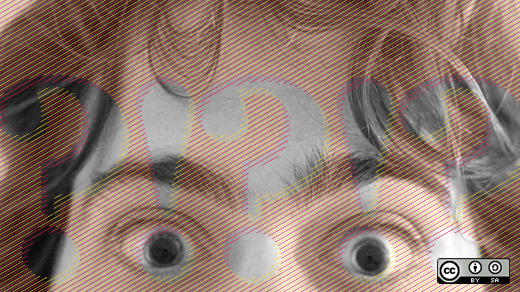Co-author: Paul Jones
Most people--including my parents--have email. But now, just as mom and dad (and, though more rarely, grandma and grandpa) are getting on the email bandwagon, it seems a fair number of folks are jumping right off. And I don’t mean great-aunts who decided it was too difficult or dirty.
The most recent--and closest--notice was a post from Paul Jones, the director of Ibiblio.org and a professor at UNC-Chapel Hill. Professor Jones also happens to be my former boss, a prolific writer and speaker, a bit of an internet celebrity, and a good friend. And because of his extensive help reviewing and providing the basis for this piece, a co-author.
He posted the opening salvo of the email-less on May 3, and it went like this:
“Giving up email beginning June 1, 2011. You will be able to reach me on Facebook and on most socialnetworking sites as smalljones including Twitter, Gtalk, AIM, Skype, Quora, Hunch, LinkedIn, DropBox, YouTube, XtraNormal and here on this blog.”
Professor Jones isn’t the first person to ponder divesting. He’s following the lead of several other tech pioneers (his friends and influencers, the way he’s one of mine)--Donald Knuth, the Stanford professor and author. And Luis Suarez, a community builder and social evangelist at IBM. They’ve both written extensively about their reasoning, process, and success since abandoning the inbox.
Jones has conversed with Red Hat thinker Michael Tiemann about the attempt. He’s opened it up for comment on his blog. And we’ve been watching, fascinated. We asked him if he’d mind talking about it a bit more, or if we followed along and shared it with our readers. Thus, this article (and perhaps others that look at the result) was born.
How did we do it, without email? Email is usually part of the writing process at opensource.com. Drafts traded, updates made, all by emailed correspondence. I had to change routine for this article, but it wasn’t difficult. The process was, in fact, quite smooth. I caught the tweeted updates about Jones’ blog posts (which also showed up in my RSS feed) on my Android phone. We used Facebook to connect, chat, and exchange messages. Google Docs came into play to compose the piece, share it, discuss it, and work on the interview portion. We didn’t trade a single piece of real email1.
How the others have fared
Knuth’s been email-free (well, ok, sort of--he has a secretary to receive email and pass along any important information) since 1990. While working on one of the exhaustive volumes of The Art of Computer Programming, Knuth found himself losing too much time wading through spam and unsolicited mail.
Knuth’s solution is probably not practical for everyone. Most of us don’t have a secretary. If we miss the important notice from HR about our benefits, well--no one’s going to print it out and pass it on, and we might get an unpleasant surprise next time we go to the doctor.
But, at the lowest level, Knuth has done the same thing Suarez has--and Jones is attempting: He shifted one form of communication (email) to another (snail mail and direct communication through his assistant).
Suarez’s approach, however, is a bit more reasonable for the rest of us. Like Jones, he moved the conversations he was having through email to other venues--and often found (as he suspected he would) the new method more appropriate and efficient. Quick responses got moved to chat; more elaborate conversations reverted to that old-tech method--the phone call.
Admittedly, Suarez is not exactly email-free, merely email-reduced. After three years, he was able to reduce his inbox count by more than 90 percent--down to an average of 17 emails per week, instead of the hundreds he was having to sift through before.
But it’s a far cry from what people expected. Like Jones, Suarez had his share of detractors. He’s commented in several of his talks, and in blog posts, that coworkers expected his email-free experiment to be short-lived. Others, more negative, speculated it could cost him his job. None of these things have happened.
The open source problem (and other motivations)
The level of concern--and outright anger--about such a communications change is interesting. Do people resent their own email ball-and-chain so much that, like with other bad environments, they want company in their misery? Or are they simply worried that their emails will go unanswered, or that the new venue for communication will result in more work on their part, or less choice about how they can respond?
Choice is important--especially for Professor Jones, and for opensource.com. Free and open source software (FOSS) advocates would like as much of their technology (if not all of it) to be developed and licensed in open ways. With email, as Jones points out, that choice is dubious--few people take the time to investigate the infrastructure behind their email or behind their internet service, nor that of the people they communicate with. It’s possible to choose open source alternatives often, but nearly impossible to not make use of a proprietary tool somewhere down the line.
The social media universe is wide. For almost every proprietary tool (Facebook), there is a open one (identi.ca, based on a free software package called StatusNet), but the crux of the matter is adoption. If you want to talk to friends who exclusively use FB, or see their posts, pictures, and updates, you have to sign up for the service. Open APIs and plug-ins to other platforms alleviate some of this lock-in, but not all, and they’re dependant upon the user actually using them.
People congregate around a useful social tool. Which tool this is changes, both as technologies develop and per user group. Adults over 55, to cull an example from research and our own anecdotal experience, tend to use email more than they do social apps or online shopping. It would be less likely, for example, for mom to maintain something like a Facebook account or an identi.ca profile. And she probably wouldn’t use both--she would see it as useless duplication of effort, and not have the technical savvy (or desire) to integrate the services.
But bringing up the generational split introduces another interesting wrinkle. Young people still make up a vast majority of the internet’s denizens. The choices people will have in the future depend largely on what tools they--and those that come after--rally around. And in late 2010, Pew Internet and the American Life project found that teens--the generation after Y Millennials--were growing even less likely to use email--only 11 percent of teens (12-17) used email to keep in daily contact with their peers. This is down from 14 percent, over three years (from November 2006 to September 2009). Contrast this with social networking--in 2006, 21 percent used IMs and FB to connect with pals. But 2009, it rose to 25 percent. But the real winner is direct text messaging--27 percent used it in 2006, but over half (54 percent) used texts three years later.
Can we leave our inboxes behind, and follow teens to texts and social networks? What if none of your age-bracket contemporaries choose to subscribe to the same services or use web-enabled phones? How do you pick which social media platforms to invest in?
Next: We interview Paul Jones about his decision to abandon email.
More info
- Paul Jones blog, category #noemail
- A World without Email by Luis Suarez (IBM World Usability Day, Windows Media video)
- World 2.0 Expo: Thinking Outside the Inbox (Luis Suarez talk)
- New York Times: I Freed Myself from E-mail’s Grip by Luis Suarez
- Knuth versus Email: Email (let’s drop the hyphen) by Donald Knuth
- Slate: The Death of Email
- The Oatmeal: Comics about email
1 I’m not counting the automated emails sent by Google Docs, since neither of us really composed them as email, and they were technically alerts I could have routed through one of several other interfaces.






44 Comments